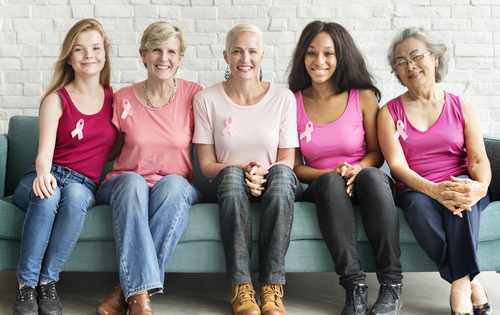Clinical trials for hormone-dependent advanced breast cancer should be less restrictive in the criteria used to determine who can participate, and they should allow pre-menopausal women — who account for a third of these cancer cases — to participate, clinical experts state.
An expert panel recently convened during the Advanced Breast Cancer Fourth International Consensus Conference (ABC 4) to define new guidelines for treating advanced breast cancer.
The panel, composed of 1,300 experts and patients from 88 countries, called for future trials designed to enable both pre- and post-menopausal women to take part, helping doctors identify new treatments for a patient population with limited treatment options.
“At present, not only are younger women denied the opportunity to take part in clinical trials, but also clinicians lack the evidence on how best to treat these patients who have advanced breast cancer with limited therapies available,” professor Fatima Cardoso, director of the Breast Unit at the Champalimaud Cancer Centre in Lisbon, Portugal, and chair of the ABC 4 conference, said in a press release.
Many women have estrogen receptor (ER)-positive breast cancer, which involves tumors that are “fed” by the female hormone estrogen. In pre-menopausal women, estrogen is produced by the ovaries, and women are treated by either permanently removing the ovaries or with drugs that temporarily halt estrogen production. Such methods cause women to enter menopause.
“This ‘induced menopause’ means that including these younger women in trials alongside older women is unlikely to hamper the research. On the contrary, it might make it easier to recruit women on to the trial and it might give us more information on how best to treat women of all ages,” Cardoso said.
While breast cancer is less common among pre-menopausal women, these women often have additional concerns regarding fertility, the ability to work, and their body image.
Therefore, professor Bella Kaufman, a breast cancer specialized oncologist at the Sheba Medical Center in Tel Hashomer, Israel, and an advanced breast cancer patient herself, believes that it is critical to include these women in clinical trials and find answers that can fully address their needs.
Among the many issues discussed during the session, the use of complementary therapies for the management of breast cancer symptoms and cancer treatment-related adverse side effects also was debated.
The panel agreed that replacing scientifically-based drugs with alternative treatments such as antioxidant supplements, Chinese herbal medicine, oxygen and ozone therapy, or high doses of vitamins is not recommended as they fail to show benefits and can even worsen a patient’s condition.
However, clinicians should state clearly to their patients that some complementary therapies — including exercise, mindfulness, and acupuncture — can alleviate symptoms or treatment side effects and improve quality of life when given with standard-of-care treatment.
“This new set of guidelines offers clarity on the vast amount of research and information available to women with advanced breast cancer and the people who treat and care for them. What sets them apart is that they are produced by a partnership of patients and researchers,” said Eric Winer, director of breast oncology at the Dana-Farber Cancer Institute in Boston, and co-chair of the conference.
“In the end, it is all about listening to our patients and communicating clearly. Whether we are talking about standard therapies or complementary approaches, we need to ensure that all lines of communication are wide open,” he added.

